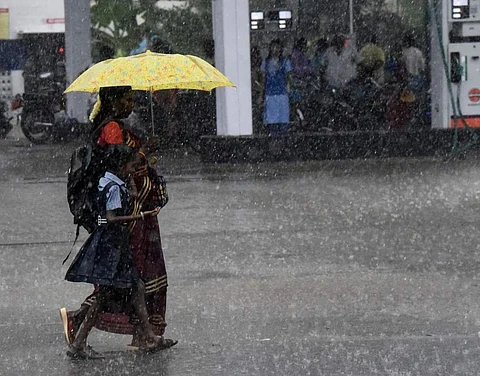

Monsoon's wrath and searing heat waves painted a grim picture for Indian schools in 2023, with classrooms echoing the absence of students rather than the hum of learning. While pinning down the precise number of weather-related closures across the nation's diverse landscape is a formidable task, scattered reports and official pronouncements paint a vivid portrait of disruption.
Uttarakhand, Uttar Pradesh, and Himachal Pradesh bore the brunt of the monsoon's fury, with schools shutting down for days on end. Images of waterlogged streets and overflowing rivers became a grim backdrop to closed school gates. Lucknow and several districts in Uttarakhand witnessed closures lasting up to two days in September, mirroring similar scenes in Punjab and Haryana a few months earlier, where relentless rain forced week-long shutdowns.
Yet, the monsoon was not the sole culprit. Scorching heatwaves, particularly in the north and west, also played their part. Rajasthan, in May, saw temperatures soaring above 45°C, prompting school closures to protect students from the scorching sun. Gujarat and Madhya Pradesh faced similar disruptions in April.
Even cyclones, though less frequent, left their mark. Cyclone Asani in May forced coastal Andhra Pradesh and Odisha to shutter schools, while Cyclone Sitrang in October echoed its disruptive path in West Bengal and Tamil Nadu.
These instances, while offering a glimpse of the weather's impact, likely represent only a fraction of the closures. Rural areas often see disruptions go unreported, while localised events like flash floods and dust storms can shutter schools without national fanfare.
Beyond the numbers, the consequences of weather-induced closures go far deeper than missed academic days. Students, especially those from disadvantaged backgrounds, may struggle to catch up while working parents face childcare challenges. Schools grapple with adjusting schedules and assessments, all amidst the added burden of ensuring educational continuity.
As India navigates its changing climate, building resilience into its education system becomes paramount. Early warning systems, flexible learning models, and climate-resilient infrastructure are crucial tools to ensure that even when the skies turn turbulent, learning doesn't have to be washed away.
